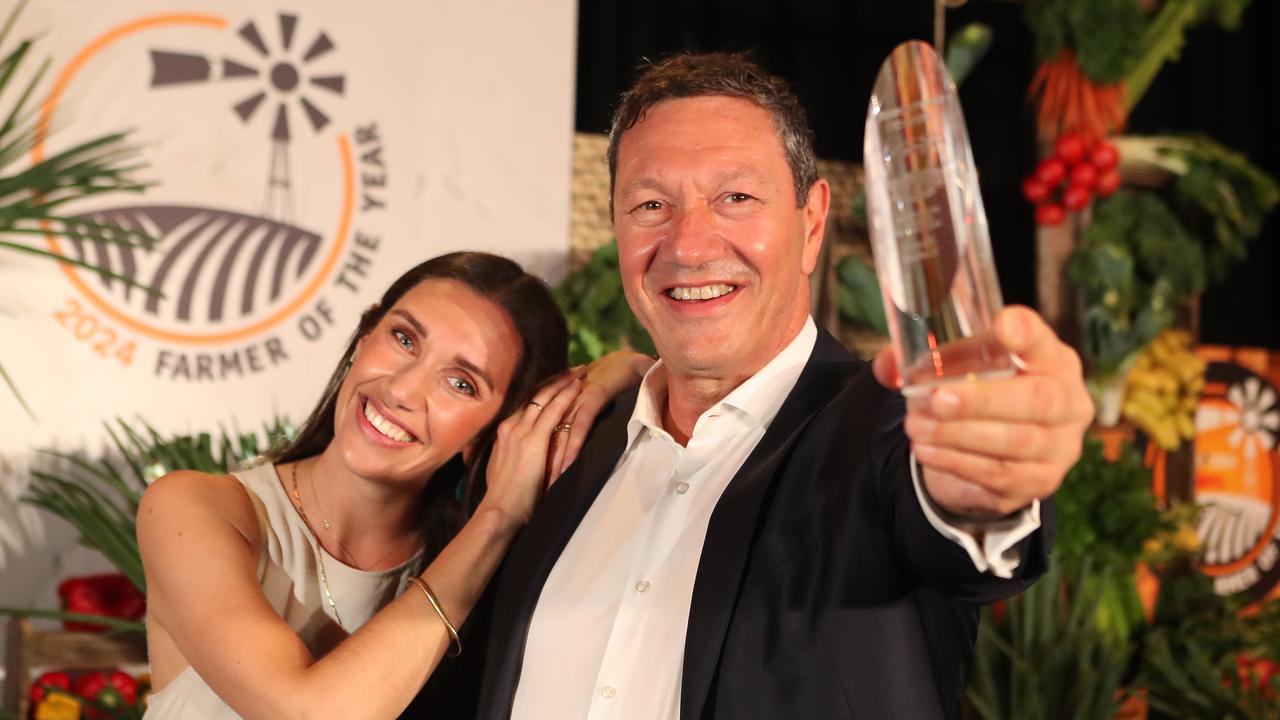Jack and Celia Tucker of Tucker’s Dorper at Willaura North raise the lamb steaks
A TRAILER load of Dorper sheep is not the most romantic birthday present.

A TRAILER load of Dorper sheep is not the most romantic birthday present.
But when Jack Tucker presented his wife Celia with 25 Dorpers (not gift wrapped) for her birthday in 2010, it was nevertheless a momentous occasion.
The sheep represented the start of their Tucker’s Dorper business, which today has grown to a flock of 300 self-replacing ewes and which is a significant sideline to their farming business.
“He’s very good at giving practical birthday presents,” Celia, 37, laughed. “For my birthday the following year, I got two alpacas.”
Launched in November last year, Tucker’s Dorper is run on half of the couple’s 120ha property at Willaura North, near Ararat in Victoria’s west.
The other half is dedicated to cropping and in addition Jack and Celia farm 2500ha of cropping and Dorpers in a partnership with Jack’s parents, Jo and Kathy, and his brother, Andy, and his wife Jess.
Jack and Celia said that at the time of the Dorper birthday present, the sheep — renowned for thriving in arid areas of NSW and South Australia — were a relatively new breed to the area, choosing them as a perfect low-maintenance sideline to the larger business.
“We didn’t want sheep to be time-consuming,” Jack, 36, said.
“Financially, Dorpers are a no-brainer. They fit our management program — they require no shearing, no crutching, don’t get fly strike or lice and don’t need mulesing.”
As fate would have it, the summer of 2010-11 was one of the wettest.
“In really wet country they can develop foot issues but they had no problems at all. That gave us the confidence to continue,” Jack said.
“That wet summer everyone else with sheep was chasing fly strike but we didn’t have one issue.”
Despite this initial success, the Tuckers still received some raised eyebrows from curious locals.
“Because this is traditionally Merino country some people told us Dorpers wouldn’t be suitable,” said Celia, who grew up on a livestock farm south of Willaura, studied natural resource management and sustainability and is now secretary of the Upper Hopkins Land Management Group.
“As time has gone on people have shifted their attitude to Dorpers and we now have other farmers showing genuine interest in how they are performing,” Celia said.
Jack said in all their business decisions they didn’t let tradition or emotion get involved.
“We follow our gut feeling and do what we think is right. We make decisions on our own experience, not necessarily what other people are telling us.”
Aiming for a maximum flock of 350 within the next three years, Jack said they had now reached a point where they were classing the flock heavily.
He said they had opted for black-faced Dorpers rather than white-faced Dorpers because they believed the former were hardier.
In all their genetics, they have aimed for sound structure, sheep that are good shedders and are correct in the feet, buying rams most recently from South Australia’s The Croft stud, opting for rams that come from a twin, which will hopefully help increase their lambing percentages.
The Tuckers join in February for a lambing in late July or early August, ready for the spring pasture growth.
The flock is grass-fed and managed in a low input model.
Worm burden is kept in check through rotational grazing, moving the flock to new pastures every week, except during lambing.
“We are not organic but we are sustainable. We have not drenched in two years, but we haven’t gone organic because we want to drench if we have to,” he said.
“And, if there’s any deficiency in the soil we want the option to use synthetic fertilisers.”
Pastures are fertilised with chook manure. “We are looking to improve one paddock per year with a phalaris-based pasture mix. But because it’s a new business we are making changes gradually,” he said.
The Tuckers supplementary feed when required, normally in the summer months and middle of winter but “one of the issues we have is to keep weight off the ewes”.
“They can get too big and that’s a problem when lambing,” Jack said.
Averaging about 150 wether lambs each year, the couple slaughter about 30 of the best each quarter, aiming for 18-22kg dressed weight and between age four and 12 months.
After being processed at Frewstals in Stawell, they are sent to Newtons Butchers in Stawell where they are cut and packaged.
They have about 50 customers, growing through word of mouth in the local district and along the Western Highway to Melbourne.


